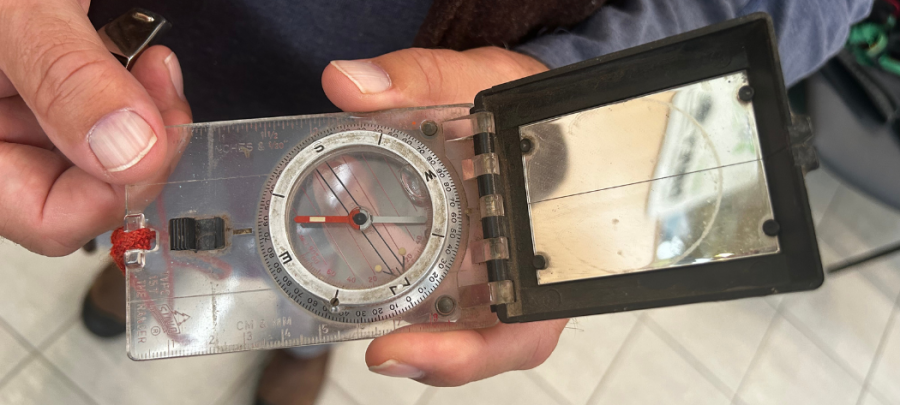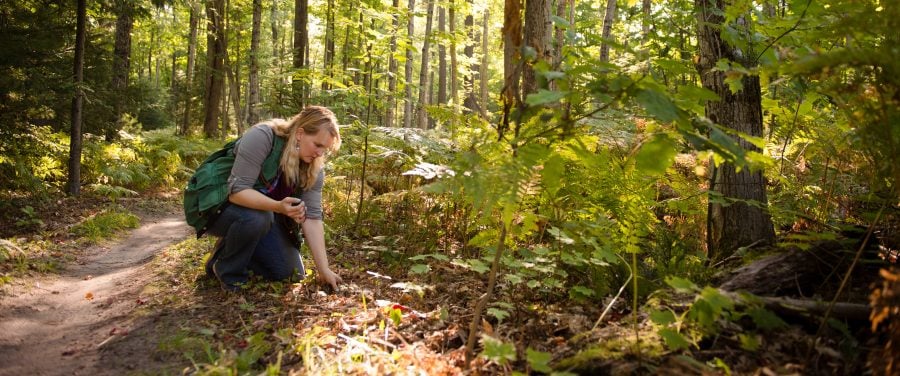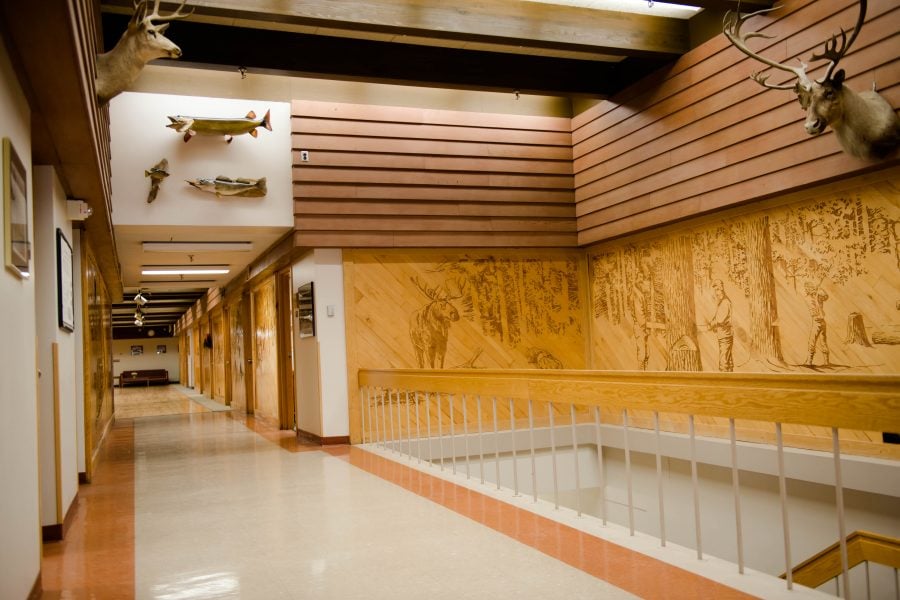
The College of Forest Resources and Environmental Science’s Natural Resource Career Fair continues a legacy of genuine investment in student success passed down from CFRES faculty and alumni to the next generation of professionals. R.J. Laverne, a Davey Tree company representative, Tech alum, and adjunct professor opened Career Fair by likening the event to one of his prized possessions: a compass he bought in 1979, not long after he became a Husky.
“I think that for the students who will participate today, you may just find the right person at one of these tables to point you in the right direction. This could be the career compass that puts you on the first step toward a successful career,” said Laverne, who earned his forestry degree in 1980.
He emphasized the impact Michigan Tech’s faculty had on his career, particularly former forestry head Gene Hesterberg. “I was, on a good day, a mediocre student. Despite my poor academic performance at other institutions, Dr. Hesterberg took a chance on me,” said Laverne.

